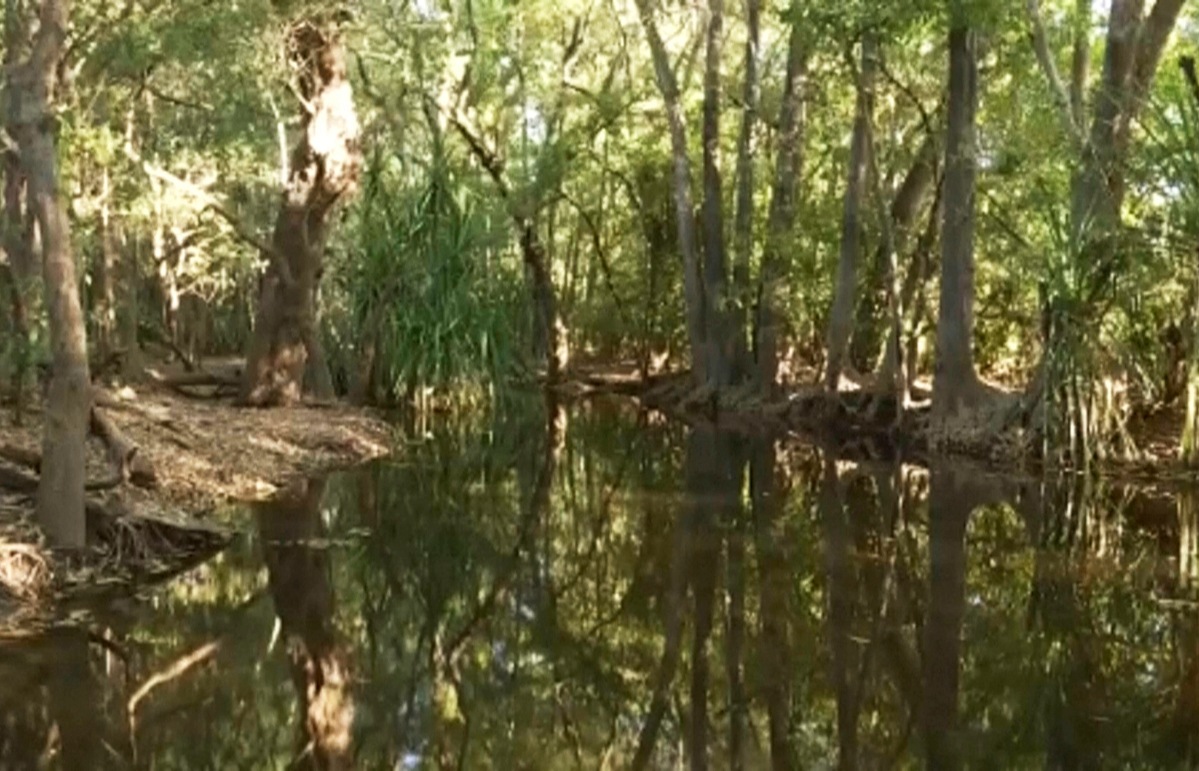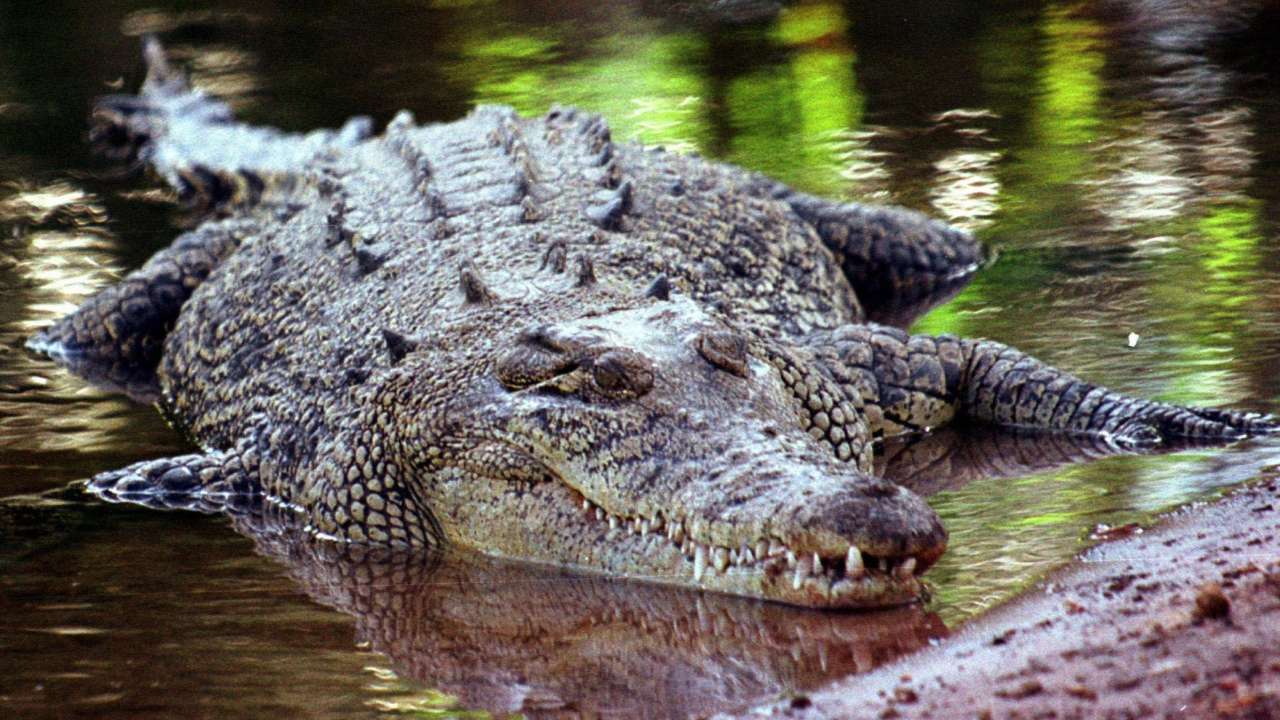Rangers in northern Australia have shot dead a 14ft (4.2m) crocodile after it killed a 12-year-old girl while she was swimming with her family last week, police said on Wednesday.
The girl’s death was the first fatal crocodile attack in the Northern Territory since 2018 when an indigenous woman was killed while gathering mussels in a river.
The attack has rekindled debate on whether more should be done to curb the crocodile population in the Northern Territory, where the protected species has increasingly encroached on human populations.
Wildlife rangers had been attempting to trap or shoot the crocodile since the girl was attacked last week in Mango Creek near Palumpa, an Outback indigenous community.
They shot the reptile on Sunday after getting permission from the region’s traditional landowners. Saltwater crocodiles are considered a totem by many indigenous Australians.
 PA Media
PA MediaPolice said analysis had confirmed it was the one that killed the girl.
Senior sergeant Erica Gibson said in a statement: “The events of last week have had a huge impact on the family and local police are continuing to provide support to everyone impacted.”
Northern Territory-based crocodile scientist Grahame Webb said a reptile the size of the one shot had to be male and at least 30 years old. They grow throughout their lives and can live up to 70 years.
The girl’s death came weeks after the Northern Territory approved a 10-year plan to contain crocodile numbers, increasing the rate of culling near human habitat from 300 to 1,200 a year.
The Northern Territory government said after the latest fatality that crocodiles could not be allowed to outnumber humans.
The Northern Territory has a land area around the size of France and Spain combined but a population of only 250,000 people. Crocodile numbers are estimated at 100,000.
The crocodile population was as low as 3,000 before hunting them was outlawed by federal legislation in 1971.
Mr Webb said the territory’s crocodiles had largely stabilised their own population in recent years by killing each other for food or territory.
“They eat each other. The crocs have been controlling their own population. It’s not really people that have been controlling them,” he said.
Follow STV News on WhatsApp
Scan the QR code on your mobile device for all the latest news from around the country


 ITV
ITV

























